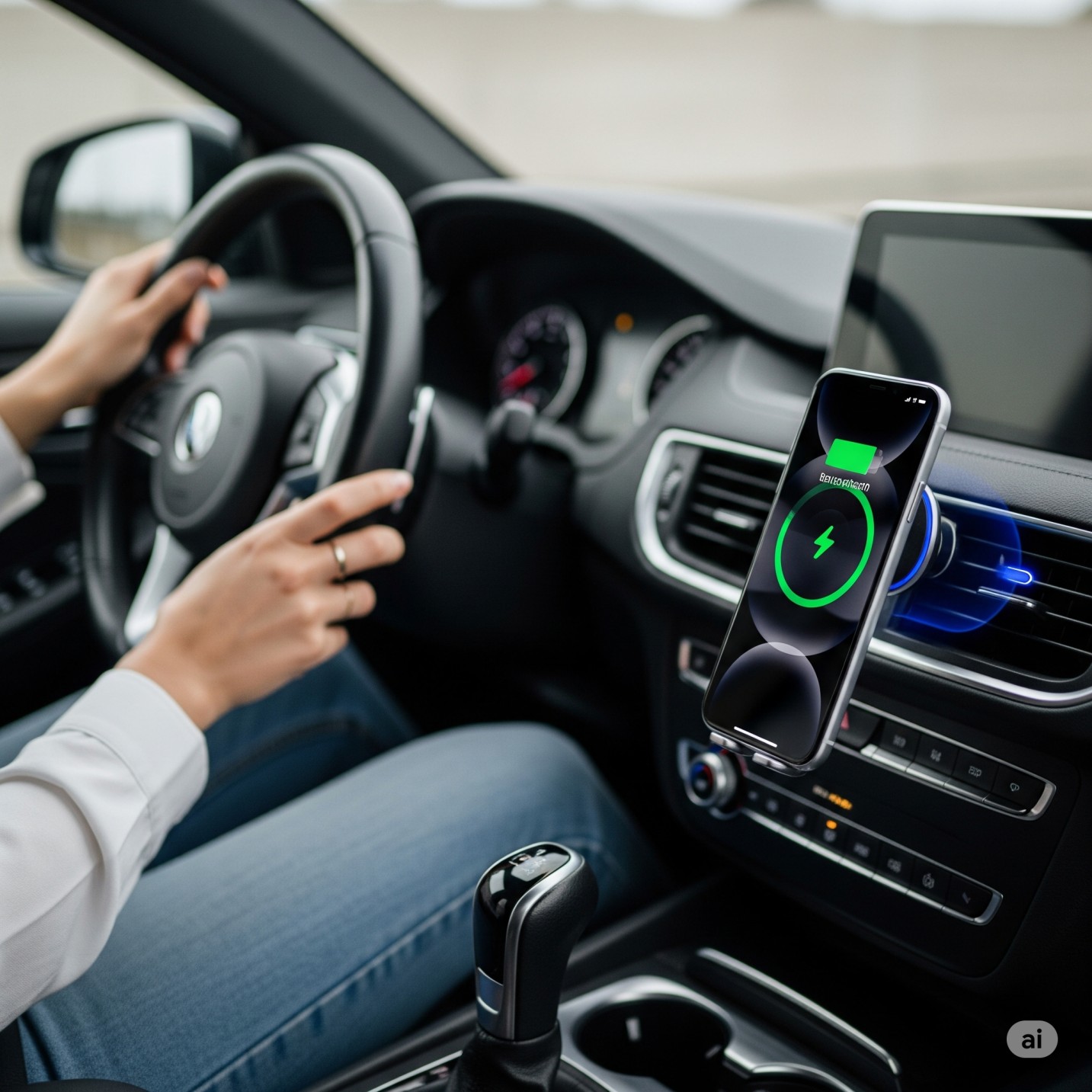


With the rising figure of car charger preferences, consumers and groups are regularly torn between which kind of charger works well with security and accessibility, the traditional car chargers, or the magnetic phone charger cable. Whether we are helping a consumer to select a product or directing a fresh, advanced idea, accepting the merits and demerits of both kinds is important.
The most visible change lies in how those would attach. A car charging cable plugs openly into our phone, although magnetic chargers’ usage would be a magnetized connector that “snaps” into place. These minor changes influence usability, durability, and even drivers’ safety.
A magnetic phone charger cable structures a magnetic connector that attaches simply to a small connector implanted into the phone’s charging port. These connectors are normally USB-C, Lightning, or micro-USB, based on the particular device.
Advantages
Related to the traditional car chargers, the magnetic cables offer an extra unified plus less disruptive understanding while driving, making them perfect for short trips or rideshare drivers.
A best car charging cable usually connects through USB to the car's charging port. We physically plug it then unplug it from our mobile phone every single time.
Advantages
That said, usage of traditional chargers while driving frequently needs extra care and management, approximately we don’t need when navigating traffic or altering the GPS.
Magnetic cables offer the comfort of use on the roads. Drivers will be able to attach or detach their phone with one hand comfortably or even with one finger. Traditional cables need extra energy, causing disturbance.
And more, with the magnetic phone charger cable, there’s less threat of jerking our phone off a mount or dropping it amid seats, whereas reaching for the actual plug.
Yes, several do. Still, it rests on the specific brand and build. To provide a fast charge, equally the cable and mobile phones must have standards like QC 3.0 or PD.
Temporarily, maximum car charging cable choices arise with the fast-charging structures built in, particularly after trustworthy brands. The presentation gap has lessened in recent years, although the magnetic cables quiet delay a little in power distribution speed.
Not every magnetic cable requires the proper tip/adapter to fix. Whereas particular come with all of the three standard tips (USB-C, Lightning, and micro-USB), others are platform-specific.
A best car mobile charger through a traditional cable typically supports both Androids and iPhones as long as we use the suitable cable type. In a marketing setting, this could be a significant point to monitor consumers’ choices.
Precisely, yes; however, it requires a USB port or socket for the power. The magnetic part simply moves how these cables attach to the phone, not the car itself.
If somebody’s car previously has a USB port, or they are using a car charging cable with a 12V adapter and the magnetic cable will work just as fine. Compatibility hinges more on power output than on the car model.
For instance, if a consumer criticizes their phone not charging correctly, it's regularly due to frequent cable tension from the traditional usage, approximately a magnetic phone charger cable reduces efficiently.
No more than traditional chargers if you're using a reputable brand. However, low-quality magnetic cables can:
So, it’s crucial to ensure the car mobile charger used includes over-voltage protection and is certified for safety.
Some magnetic tips claim water resistance, but the overall setup isn't waterproof. Moisture in the port or magnetic area can cause corrosion or connectivity issues.
Traditional car charging cable arrangements charge likewise. It’s good to guide consumers to keep chargers away from humidity and water exposure.
Look for dealers that bring qualified brands presenting multi-device compatibility, fast charging, and security features. Internal teams should guide customers toward products with proper voltage regulation and warranty support.
Whether traditional or magnetic, an excellent car mobile charger must cater to the consumer's driving styles, mobile phone model, and charging needs.
Magnetic chargers are safe, easy, and one-handed connections. Traditional chargers require more focus to connect and more risk of damage
In conclusion, magnetic phone charger cable choices deliver greater accessibility and security for on-the-go consumers, particularly while driving. Traditional chargers deal with fast and constant presentation, making them consistent for consumers who don’t usually unplug during the trips.
Eventually, it rests on our driving attitude and charging needs. Use this insight to positively support consumer queries and create product recommendations that equal real-world use cases.
Which one is better for charging while driving?
The magnetic chargers are much safer and more convenient for on-the-go charging as they decrease interruptions and allow cool one-handed usage.
Do the magnetic chargers support fast charging?
Certainly, however simply if they’re aimed to provide fast-charging protocols like QC or PD. Not all models offer this feature.
Are all the magnetic cables compatible with iPhones and Androids?
It is applicable only if they come with all three standard tips: USB-C, Lightning, and micro-USB. Constantly check before purchasing.
Do magnetic chargers work in every car?
Yes, as long as there is a USB or 12V power source. The magnetic function only affects the connection to the phone, not the car itself.
What are the main risks of the traditional chargers?
They can easily damage the phone port over a period of time, specifically with repeated plug-ins and cable pulls, and they can be difficult to accomplish while driving.
Do magnetic cables cause battery damage?
No, if they're from a reliable brand. Inexpensive or uncertified cables can really deliver uneven voltage and affect the battery health.
Are magnetic chargers’ waterproof?
Not completely. Particular tips can fight slight wetness; however, neither kind must be used in wet conditions unless rated as waterproof.
Where can we buy a high-quality car mobile charger?
Select qualified electronics dealers or online sellers providing warranty-backed goods with several compatibility selections.